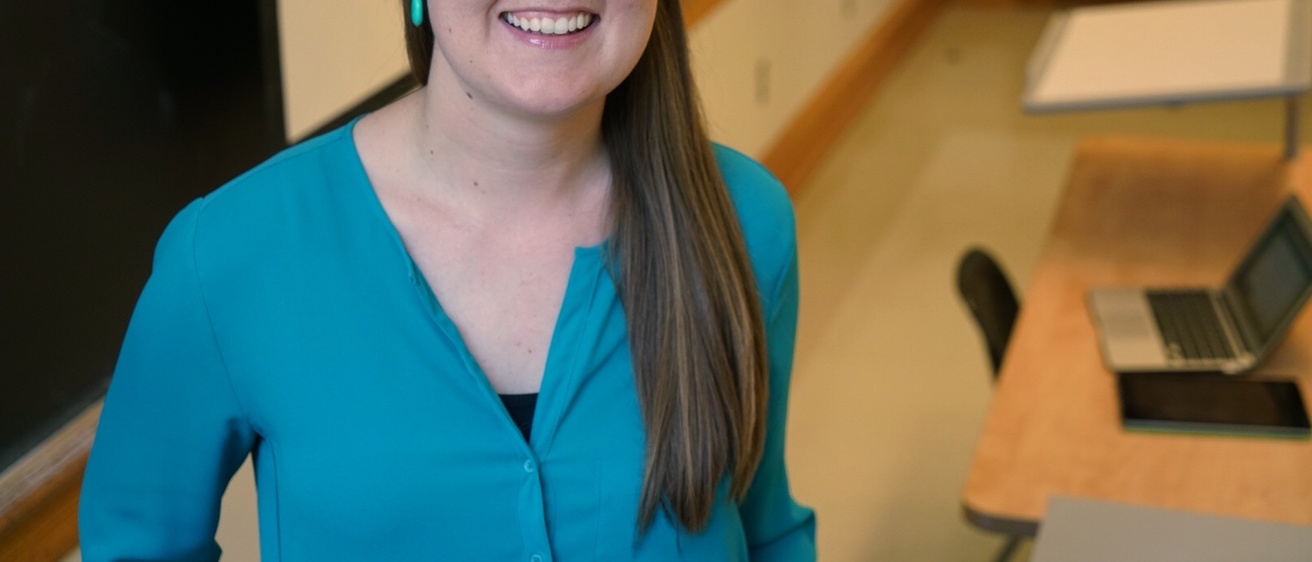By Lois J. Gray
New study tests potential solutions
Making ends meet while attending college can be difficult.
Food and housing insecurity are growing issues among college students, but especially for community college students.
Katharine Broton, an assistant professor in the University of Iowa College of Education’s Educational Policy and Leadership Studies, is helping search for solutions along with colleagues Sara Goldrick-Rab at Temple University and Daphne Hernandez at the University of Houston.
The trio is partnering with community colleges and local agencies in Boston, Houston and Tacoma to evaluate food and housing supports for community college students in need. The project is supported by a $550,000 grant from The Kresge Foundation, of which $66,165 will go to the University of Iowa. Goldrick-Rab is the principal investigator while Broton and Hernandez serve as co-principal investigators.
“Basic needs insecurity affects students all across the nation, including here in Iowa,” Broton says. “My research is about higher education, inequality, and poverty, and this project complements my current work on basic needs insecurity among college students.”
A white paper entitled “Addressing Basic Needs Security in Higher Education: An Introduction to Three Evaluations of Supports for Food and Housing at Community Colleges,” was released today, Monday, Sept. 25, by The Wisconsin Hope Lab, which is the nation’s only translational research lab focused on issues of college affordability and equity.
A substantial share of college students lack adequate food and secure housing; they are basic needs insecure, explains Broton.
According to a recent report by the Wisconsin HOPE Lab, over half (56%) of students at 70 community colleges across the nation are food insecure, experiencing reductions in the quality or quantity of their diet. Even more students report that they are worried about their food supply. Similarly, half of community college students are insecure in their living arrangements as indicated by housing unaffordability and instability (35%), or outright homelessness (14%).
“This is concerning on multiple levels, including that students who are basic needs insecure may not be able to do their best in school,” Broton says.
The team is conducting the first-ever studies of basic needs security interventions in higher education. Broton is leading the Boston site where she is testing the causal impact of meal vouchers on students’ academic success and well-being.
Other interventions include exploring a food scholarship program in Houston and a housing voucher program in Tacoma, Washington, where Broton is also providing support.
Bronton and colleagues say that the results of the Boston meal intervention program should be of great interest to colleges around the country, most of whom provide food services on campus and could implement such a program with their providers. They will also speak to the likely impact of meal “swipe" programs, and further shed some light on the potential impacts of expanding a free or subsidized meal program—like the one implemented in America’s k-12 schools—to community colleges.
The goal is to go beyond serving students at three colleges and reach students in colleges across the country that learn from the research. Reports from these programs and their accompanying evaluations will be publicly available beginning in late 2018.
The paper is being presented Tuesday, Sept. 26, at the Association of Community College Trustees (ACCT) Leadership Congress in Las Vegas.
